For designer Emily Daccarett fashion and music cannot be separated. Daccarett creates an immersive world of storytelling through music, film, and fashion. Each artistic direction begins with a beat that forms a story. From the start of her brand, she has fused those worlds together, creating a symbiotic flow between the two. She uses textiles, shapes, and sound as her tools to world building, and give her audience the chance to step into those stories and experience it themselves. She graduated from Instituto Marangoni in Paris and the prestigious Ecole De La Chambre Syndicale de La Couture Parisienne, where she trained in the French technique of draping and pattern making. Soon after graduated from the Musicians Institute in Los Angeles. She made her runway debut with Concept Shows during LA Fashion Week. Now she is pushing the boundaries of her imagination through synth-pop. Think of Blondie and David Lynch having a baby in 2020 and that’s the direction her music takes.
- When and how did you get started making music and do you have any formal training?
Emily Daccarett: I had voice lessons and joined the choir when I was in elementary school, but it wasn’t until I enrolled into the Musicians Institute that I received proper training. I sing very breathy, so my vocal coach really helped me learn how to breathe and not dry out my throat. Although I have always loved singing, I moved to Paris to study fashion design. It wasn’t until I was getting ready for my first fashion show, that I got the opportunity to work on an original song. I wanted a famous French song Je T’aime, Moi Non Plus for my fashion film that was going to screen before the catwalk, but getting the license was taking too long. We decided to go with a film composer and because I could write and speak French, I wrote the lyrics and provided the vocals. I loved the whole process and I haven’t stopped since then.

- I read somewhere that you claim music and fashion cannot be separated? How is this statement true for you, and your creativity?
Emily Daccarett: I use music to inspire my collections. I look to create stories with my collections and the music not only creates the atmosphere but ties the story together. It helps express to the audience what was the though process behind each piece.
- For most artists, originality is first preceded by a phase of learning and, often, emulating others. What was this like for you? How would you describe your own development as an artist, and the transition towards your own style?
Emily Daccarett: I have always been drawn to the Golden Age of Hollywood, but when I moved to Paris I got to experience a completely different aesthetic and it really resonated with me. The artists that inspire me are Serge Gainsbourg, Jane Birkin, Vanessa Paradis, Carla Bruni, and Brigette Bardot. I love the emphasis on natural beauty, embracing imperfections, the intimacy of their music, and the dreamlike nature. When I began, it was following the retro nostalgic sound and because it was for my collections, it was more of an homage to them and the 70’s. When it came to write songs as a musical artist I used this style as ground work and kept experimenting to find my own style and that’s how my EP Cannibal came to be.
- What do you feel are the key elements of satisfaction people should be getting out of your music?
Emily Daccarett: I try to create a sort of escapism with my music. To retreat to the corners of their imagination and dream away.
- What do you think separates you from the crowd of artists emerging from all corners of the globe right now?
Emily Daccarett: I play the role of artistic director, designer, stylist, music producer, and film producer, along with singer/songwriter. I can bring my knowledge and experiences of those fields into my music and myself as an artist. I think many emerging artists are either waiting for a team to create or define their identity, and/or only focus on their music. I want to give my fans an experience and something that can excite them.
- What is our process when composing a song? Where do start, and what, most often comes into your head first – the tune, the narrative, or the beat?
Emily Daccarett: The narrative comes first and I usually move on to writing lyrics, or just words that describe the narrative I’m discovering. Before locking down the lyrics, we start to work on the music and once I have the music I work on the melody.
- Is there anything you would change about how the music business works right now, or are you completely happy with the current situation and the opportunities available to you?
Emily Daccarett: Streaming and social media are amazing tools for indie artists to get their music all over the world, but this also means a music overload and it’s hard to cut through all the music that is put out every day. We are a product of our time and technology, I don’t know how it could change. It’s hard not to be affected by Tik Tok songs going viral, while so many of us are working really hard on each song and hardly getting any attention for it.
- What key ingredients do you always try and infuse into your music?
Emily Daccarett: Hope, Fantasy, Innocence, and Seduction
- What has been the most difficult thing you’ve had to endure in your life or career so far?
Emily Daccarett: Having the confidence to write music that was not for my fashion shows but as me a singer. I was scared it would tarnish my brand and make me loose opportunities for taking time to work on my craft. It was terrifying.
- On the other hand, what would you consider a successful, proud or significant point in your career so far?
Emily Daccarett: I’m really proud of my EP in particular the song “Growin Addiction” doing so well and seeing people’s reaction to it has been amazing.
- What were some of the main challenges, difficulties or goals when starting out as a musician and how have they changed over time?
Emily Daccarett: : I had damaged my vocal chords from not taking care of my voice, then getting bronchitis while interning for a brand in Paris in the middle of the coldest ( for Paris at least) winter only made it worse. It was frustrating not having the vocal range I was used to or the control. I used to imitate Britany Spears and as I worked on strengthening my vocal chords, I wrote my songs so I could stay in that comfortable mid-range and began to add the breathy emphasis I love in French pop so much. It also helped I was singing in French which just naturally gives you that breathy effect. After a year of training, I got my vocal range back and began to add it to my songs. I also did a cover of a rock song and it felt so good to stretch out my voice and use its full power.

- Do you only create and work in a studio environment, or do you also find time to perform live? And if so, which of these two do you ultimately prefer and why?
Emily Daccarett: I have performed Live and it’s such a learning experience each time, it also has helped me come up with more ideas for new songs. You learn so much being on stage, each performance is unique even if you are singing the same songs and connecting with the audience is a beautiful thing. I personally still prefer working in the studio, because it is so freeing and putting it all together is so fun. I’m hands on with everything I do and there is also a lot of visual art that goes along with the music I’ll do in the studio or plan for it.
- How do you divide your time between pursuing a career in both fashion and music?
Emily Daccarett: I’m still trying to figure out the balance, it usually means working during the weekends! They are both connected so when I’m writing a new song or like right now, I’m working on a new album, I start picturing silhouettes and details so in a way I work on the concept simultaneously. When it gets to the draping, patternmaking, and sewing I do have to put the music to the side and concentrate on only that. After two years of following the fashion cycle I abandoned the schedule and chose to design seasonless. Releasing my collections when ready and promoting more sustainability and less excess by coming out with smaller collections.
- Which aspect of being an independent artist excites you most and which aspect discourages you most?
Emily Daccarett: Having full control on what I do and taking the time to really explore and enjoy the creative process. The discouraging part comes from working so hard on it and then not really able reach as many people as others do on Tik Tok who lip synch 30 seconds of another artist’s song.
- In the era of free for all social media, how do you handle criticism and/or haters in general? Is it something you pay attention to, or simply ignore?
Emily Daccarett: I try to ignore it. I haven’t really experienced hate yet, but sometimes someone will critic my song in way where it’s not really constructive it’s more of a personal opinion and it just isn’t their style.
- Could you tell us something about your latest music release?
Emily Daccarett: I’m taking elements of my EP and deconstructing them to create a different vibe.
- What is your relationship with visual media? Do you think videos are important for your music, and do have a video clip you would like to recommend that fans watch?
Emily Daccarett: Oh boy- I love it! My songs are tied to visual media and I’m still working on new content for each one of my songs in my EP. I also created anime-inspired avatars as mascots for each song in Cannibal. I have an animated video for Growin Addiction, I wanted something smooth and minimalistic so you could let yourself drift off.

- What’s your view on the role and function of music as political, cultural and/or social vehicles – and do you try and affront any of these themes in your work, or are you purely interested in music as an expression of your artistry and pure entertainment?
Emily Daccarett: I don’t like to use other people’s pain or struggles for profit and this is not a criticism on other artists who do. I desperately wanted to change the world when I was little and I naively thought I could, but logic and reason comes with growing up. Although I cannot end pain and suffering, I want to help people see the beauty that exits through my work; to dream and look for the silver lining.
- If you could choose to work with any current international artist today, who would that be, and why?
Emily Daccarett: Lana Del Rey, her writing is beautiful and paints such a beautiful picture with her words. There is a bit of melancholy with my songs and I think we could do something special bringing our two worlds together.
- What do you find most rewarding about what you do? And do you have a specific vision or goal that you would like to achieve in 2020?
Emily Daccarett: Getting in touch with my thoughts and feelings through my lyrics. I can turn hurt into something beautiful and let it go. My goal is to not only release my album, but also the collection inspired by it, along with animated and live action music videos.
OFFICIAL LINKS: WEBSITE – YOUTUBE – INSTAGRAM – FACEBOOK – TWITTER – FASHION WEBSITE – SPOTIFY – SOUNDCLOUD


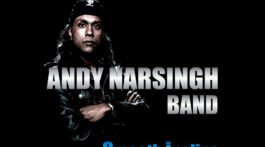
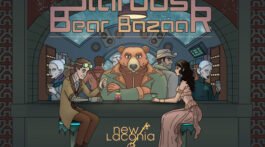
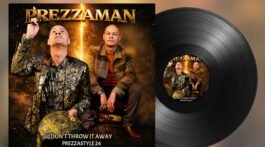
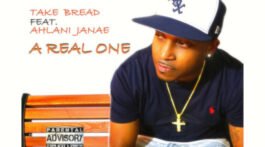
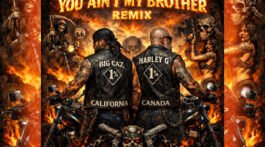




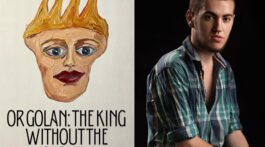
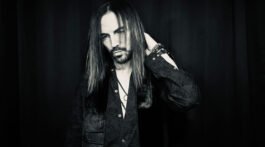
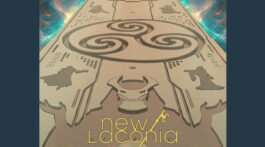
No Comment